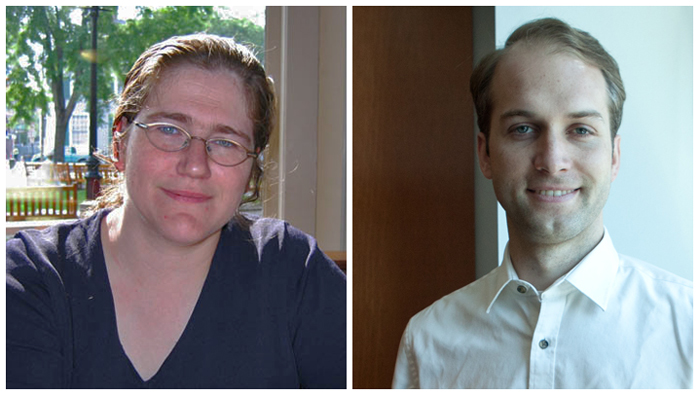
Dana Pe'er has received the Pioneer Award for high-risk, high-reward research, and postdoctoral scientist Kyle Allison has won an Early Independence Award.
Two members of the Columbia University Department of Systems Biology have been named recipients of NIH Director’s Awards from the National Institutes of Health Common Fund.
Associate Professor Dana Pe’er is one of 10 winners of the 2014 NIH Director’s Pioneer Awards. The Pioneer Awards provide up to $2.5 million over 5 years to support exceptionally creative investigators who are pursuing “high risk, high reward” science that holds great potential to transform biomedical or behavioral research. The award will support an ambitious new project to develop the technological and computational methods necessary to create a comprehensive, high-resolution atlas of development for all cell types in the human body.
In addition, Kyle Allison, a postdoctoral scientist in the laboratory of Professor Saeed Tavazoie, has received the NIH Director’s Early Independence Award. (Dr. Tavazoie is also a past winner of the Pioneer Award.) This program enables outstanding young investigators who have recently completed their PhD’s to move rapidly into independent research positions. Dr. Allison is one of just 17 scientists to receive this award this year. In combination with the Department of Systems Biology Fellows program, this five-year, $1.25 million grant will allow him to open his own laboratory at Columbia and pursue independent research to investigate the problem of bacterial persistence. He is the second Department of Systems Biology investigator to receive the Early Independence Award, joining Assistant Professor Harris Wang in being recognized with this honor.
“Having four recipients of NIH Director’s Awards within the Department of Systems Biology — and particularly two in one year — is quite remarkable,” said Department Chair Andrea Califano. “I think it’s a testimony to the timeliness of the perspectives and tools that systems biology offers and to the high quality of research being conducted at Columbia. I look forward to the discoveries that will undoubtedly come from Dana’s and Kyle’s extremely exciting efforts.”